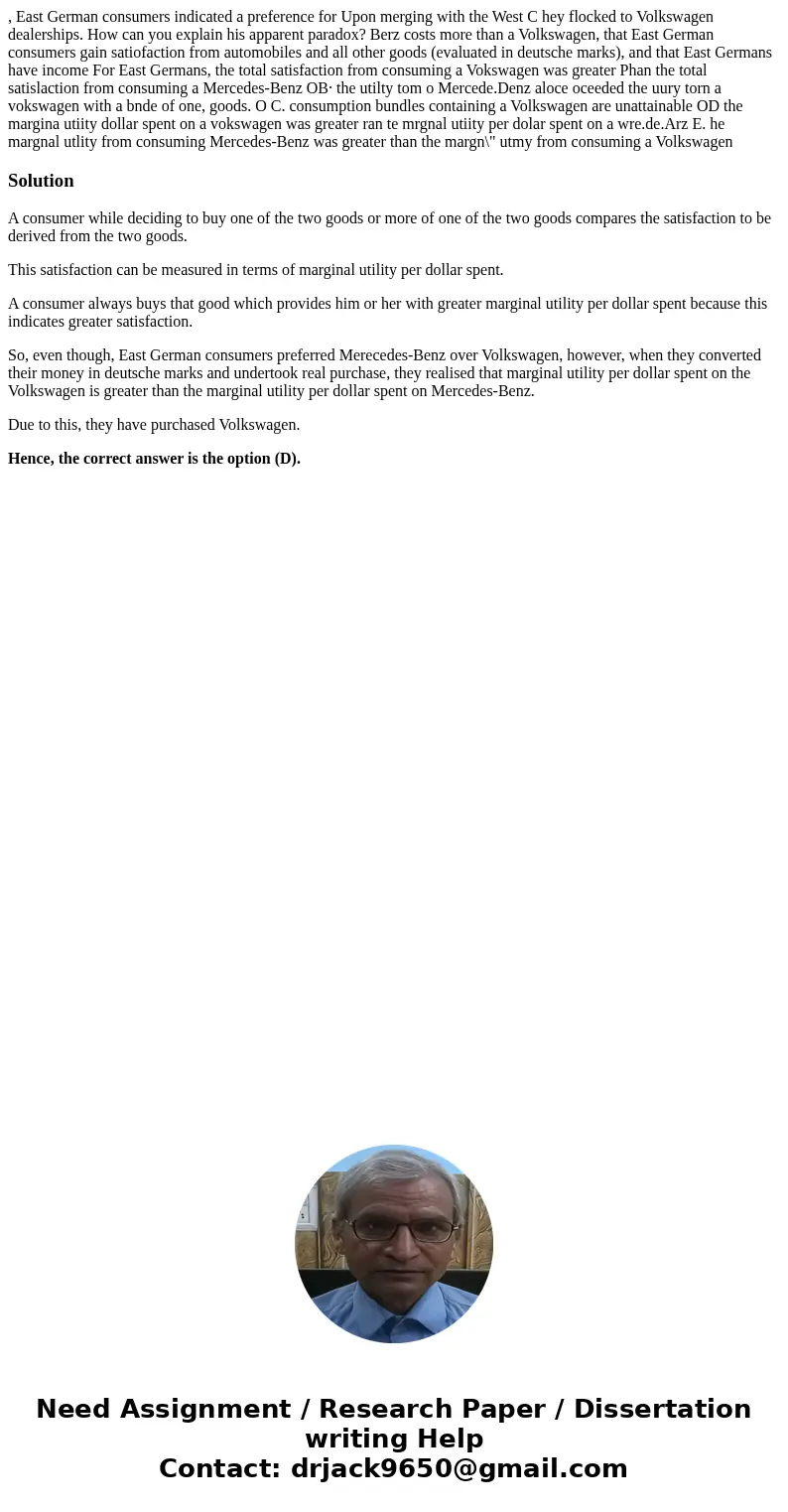East German consumers indicated a preference for Upon mergi
Solution
A consumer while deciding to buy one of the two goods or more of one of the two goods compares the satisfaction to be derived from the two goods.
This satisfaction can be measured in terms of marginal utility per dollar spent.
A consumer always buys that good which provides him or her with greater marginal utility per dollar spent because this indicates greater satisfaction.
So, even though, East German consumers preferred Merecedes-Benz over Volkswagen, however, when they converted their money in deutsche marks and undertook real purchase, they realised that marginal utility per dollar spent on the Volkswagen is greater than the marginal utility per dollar spent on Mercedes-Benz.
Due to this, they have purchased Volkswagen.
Hence, the correct answer is the option (D).

 Homework Sourse
Homework Sourse